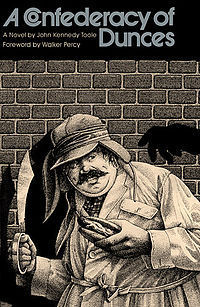date newest »
newest »
 newest »
newest »
 Excellent points, Podga. I probably should've emphasized, rather than suggested in a throwaway line, that e-publishing has provided countless writers with opportunities they wouldn't have received from print houses. That will always be the case, and readers are better off for it.
Excellent points, Podga. I probably should've emphasized, rather than suggested in a throwaway line, that e-publishing has provided countless writers with opportunities they wouldn't have received from print houses. That will always be the case, and readers are better off for it.I'm still not sure, though, that substandard writing will eventually be slapped down. Much of it continues to rise -- boosted by, yes, that ease of reaction from readers.
Maybe the currently growing snarl of releases will eventually comb itself out and not-ready-for-prime-time writers will fall by the wayside. Maybe more e-publishers will begin to see the value of quality over quantity, and new authors will have an eye toward craftsmanship rather than ego gratification. Don't know ... but I sure hope so.
 If you think about it, music isn't that different, it's just that musicians traditionally had a slightly better chance to get up in front of an audience than writers did. But for every musician that made it, there were literally hundreds that made our ears bleed on amateur nights at the local bar.
If you think about it, music isn't that different, it's just that musicians traditionally had a slightly better chance to get up in front of an audience than writers did. But for every musician that made it, there were literally hundreds that made our ears bleed on amateur nights at the local bar.I think writing & publishing will eventually shape up the same way. E-publishing might be comparatively cheap in terms of time, money and effort, but neither writers nor readers have unlimited amounts of the first two, and will eventually start making choices. As a first step, readers might begin avoiding e-publishers that don't use professional editors. E-publishers will then have to hire editors and begin deciding which writers to invest more money in. As their quality increases vs. the competition, more readers will choose them to spend their hard-earned money on, and a virtuous circle will be created.
The average person will eventually settle on ten or twelve names they like, and possibly make some further choices out of whatever "Top" lists they follow. Most of what they read or listen to will be ephemeral, the hit of the week, and a pleasant way to spend a few hours, and a small part might have a real impact on them and turn into a new classic.
And meanwhile, as you point out, the new/unknown writers still have an easier time of putting their work out there and becoming known.
Always loved your books K.Z., and for the short time I've dicovered Goodreads, I find your posts very thought-provoking, as well!
 Thank you, Podga. If you're the author of the Sweet Spot chapter I read, I must congratulate you. Keep those WIP snips coming; I have a feeling they'll be quite nice. ;-)
Thank you, Podga. If you're the author of the Sweet Spot chapter I read, I must congratulate you. Keep those WIP snips coming; I have a feeling they'll be quite nice. ;-)





Self-publishing, whether for profit, ego or actualization theoretically allows any voice to be heard and could be considered the great equalizer. You can put your work out there, and the public will vote through purchases, comments or stars. The writers that need improvement will still be slapped down, and the good writers will still float to the top, no matter what their ego or bosom buddies tell them.
In my opinion, what's driving the change in attitudes isn't so much the ease of publishing for writers, but the ease of reaction for readers, which makes both acclaim and rejection so very public. In the past, whatever my opinion of a book, I might mention it to a couple of friends, but I couldn't post it on fifty different websites. It's a whole different ballgame now.